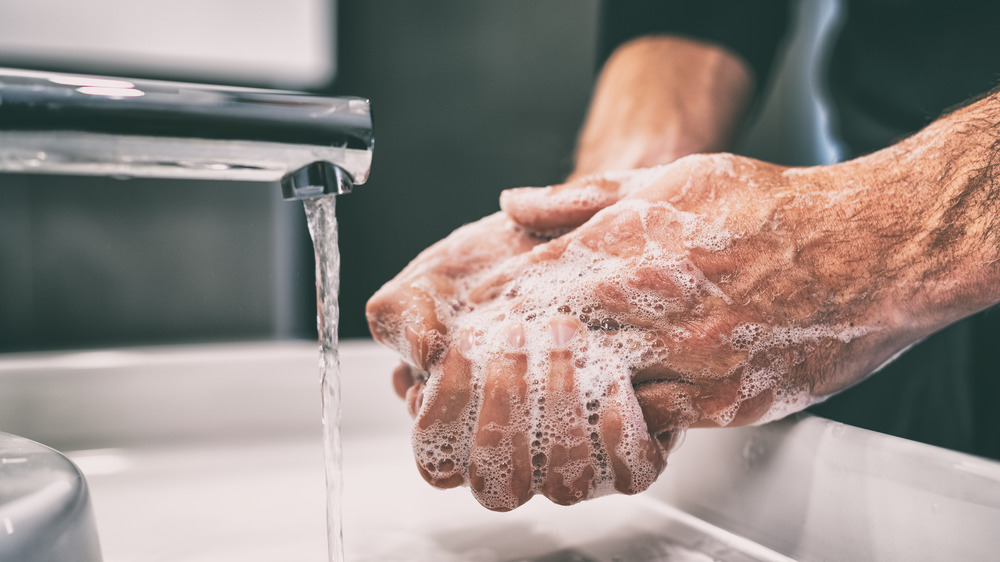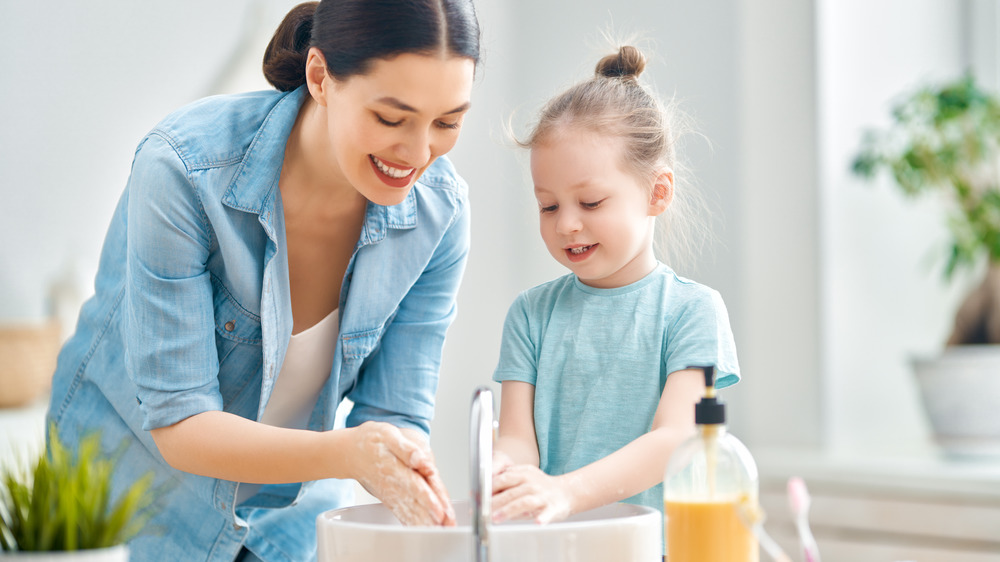This Is What Really Happens When You Don't Wash Your Hands
Every day, tiny organisms invisible to the naked eye swarm all over our hands. They hop from doorknobs and handles to fingertips and palms, or crawl over knuckles from the TV remote or smartphone you've had in your back pocket. Then like little germy commandos, they tuck in under your fingernails, waiting for you to bite your nails or scratch your nose so they can get inside your body and cause coughs, sneezes, fevers, and worse.
The PBS show Curious George imagined one pesky germ as a blues guitarist with a handful of backup singers, but real infections aren't nearly that cute. That's why the Centers for Disease Control and Prevention — plus every doctor and conscientious parent — emphasizes washing your hands. It's one of the easiest ways to avoid getting sick and spreading germs — and it's not hard, either. Wet hands with clean, running water. Lather with soap and scrub for about 15 to 30 seconds to remove dirt, microbes, and germs, the CDC says. Then rinse and dry with a clean towel or one of those heated hand dryers.
Washing your hands has added benefits besides keeping you and your loved ones healthy. What happens when you don't wash your hands? You end up spending money: One study from the University of Michigan estimates that Americans spend about $40 billion annually battling the common cold, from buying remedies such as cough syrup and lozenges, visiting doctors, and accounting for time missed from work and school (via WebMD).
When you don't wash your hands, you put yourself and others at risk
Hand-washing is on everyone's minds because of the coronavirus pandemic and flu season. The CDC recommends washing hands before, during, and after preparing food; before eating; before and after caring for someone who is ill; before and after treating a cut or a wound; after changing diapers; after touching an animal, pet food, or pet treats; and after handling garbage or using the toilet. If soap and water aren't available, use a hand sanitizer with at least 60 percent alcohol.
A poll from the London-based data and analytics group YouGov earlier this year found that 40 percent of American adults don't always wash their hands after using the restroom — and one in seven adults, or 14 percent, said they used their phones while they were in there. People skip washing their hands because they tend to overestimate their good hand hygiene and underestimate their risk of getting sick or infecting others, said Robert Aunger, a public health expert at the London School of Hygiene and Tropical Medicine (via the BBC).
"One problem with handwashing is that, especially in developed countries, you can avoid washing your hands lots and lots of times, and you won't get ill," Aunger said. If you do pick up a germ from not washing your hands, you often don't feeling until sick days later. "Even with coronavirus, they're saying the delay between being infected and seeing any symptoms is like five, six days, so the connection is very difficult to make."


